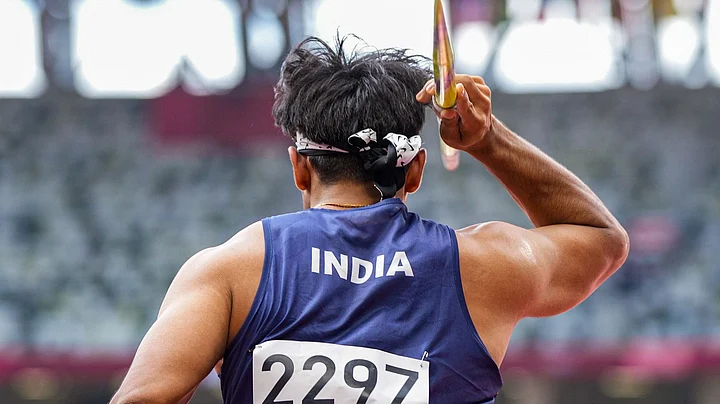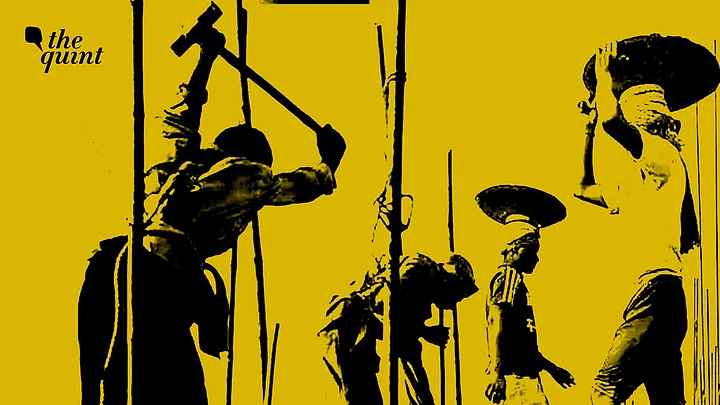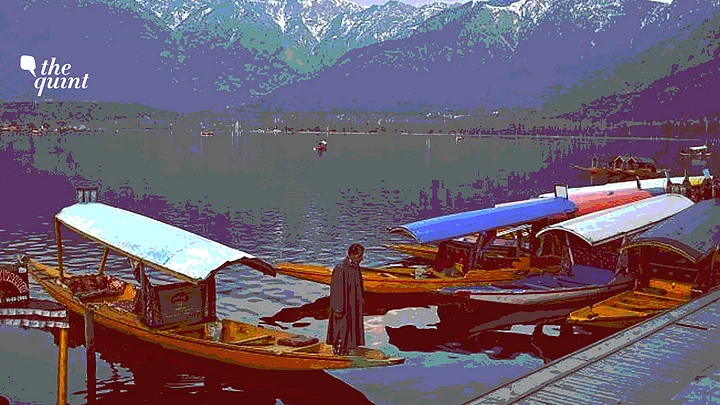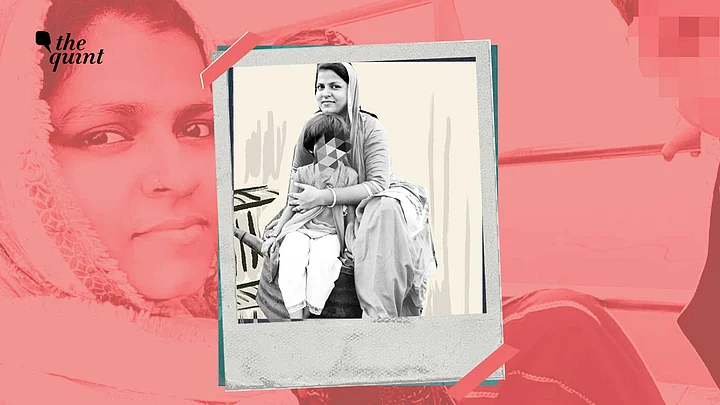When Parliament Becomes a Noisy Fish Market, and MPs Irrelevant
Start your Sunday with a cup of political tea, served piping hot by BJP leader Swapan Dasgupta. In his column for Times of India, Dasgupta bemoans the decline in the role of the Parliament and its legislators. "Indian democracy is thriving, but the parliamentary system is in deep crisis," he asserts in his piece, discussing the numerous factors that have led to the downturn.
"In recent times, parliamentary sittings have been declining steadily. From the rough average of around 60 days annually, it touched an all-time low of 33 sittings in 2020, courtesy the pandemic. If present trends persist, this may even become the new normal. The state legislatures appear to have shown the way — hardly surprising because the quantum of law-making in the states has been shrinking. Even in Parliament, thanks to the incessant din and the brazen disregard of all rules, bills have been rushed through in minutes because no discussion is possible in the fish-market atmosphere. What is also striking is the lack of public reaction to this travesty. The indifference suggests there are nominal expectations of people from Parliament."Swapan Dasgupta in Times of India
Does India Even Need a Parliament?
Furthering a similar concern, Congress leader Manish Tewari, in his column for The Indian Express, argues that the Indian Parliament, which was once a battleground of ideas, has been reduced "to a contest of cussedness on part of the government and competing lung power on part of the Opposition."
Describing the downhill trail of the Parliament sessions over the last three decades, Tewari asks if India needs, nay, deserves, such a legislature.
"The question that should be seriously asked is: Does India need such a Parliament, or even legislative assemblies? Thousands of crores are spent on election cycles every year — towards what end? India can very well function with a directly elected executive and a judiciary to exercise oversight. The legislature has completely failed to hold the government accountable, the latest example being that Parliament has been disrupted for the past three weeks now. The government is obdurate that it will not discuss the Pegasus issue and the combined Opposition is unrelenting. There is no common ground. Yet vital legislation that has a bearing on India’s future is being cavalierly passed without any deliberation."Manish Tewari in The Indian Express
Why Pegasus is Just the Tip of the Iceberg
In his weekly column for The Times of India, Swaminathan S Aiyar argues that privacy was an illusion long before Pegasus made its entrance. Observing that a small morsel of company intel can cost up to billions, Aiyar indicates how corporate espionage is as perturbing a reality as is political surveillance.
The corporate world is fully into hacking. I was told by a New York investment banker that, for security, his colleagues change their passwords every single day and their telephones every week. A small scrap of commercial intelligence can translate into profits of billions. Commercial espionage is common in every high-tech industry, and even in conventional industries like autos. This does not happen in the US alone. No one should think Indian industry lives on a higher moral plane.Swaminathan Aiyar in Times of India
"My phone has been tapped since at least 1978, and cybersecurity experts now say a hundred other agents are watching and listening too. I do not let that inhibit my writings," Aiyar adds.
Rape, Caste, and Politics
In her column for The Indian Express, Tavleen Singh, alluding to the alleged rape and murder of a Dalit girl in Delhi's Nangal, registers her disapproval over the "insensitivity with which spokesmen of the Bharatiya Janata Party responded to the child’s death." Questioning whether it was the lack of caste capital allocated to the deceased in this case that has led to the Centre's dispassionate response, Singh explores the intricate connections between rape, caste and politics.
"I was sickened by the insensitivity with which spokesmen of the Bharatiya Janata Party responded to the child’s death. They were more bothered by Congress leader Rahul Gandhi having gone to offer his condolences to the dead girl’s family than the horror of what happened to her. Sambit Patra, who is the TV face of the BJP, spoke in crude, ugly detail about what had happened to Dalit women raped in Rajasthan and with his fixed smug smile asked why Rahul Gandhi did not visit their families. If he believed this strengthened his case that Rahul went for political and not compassionate reasons, he achieved the opposite result."Tavleen Singh in The Indian Express
Pandemic: Beyond the Economy
Economic shortfalls can be recovered. Some other losses are harder to make up for. Veteran Congress leader P Chidambaram, in his column for The Indian Express, talks about the 'learning deficit' that has become increasingly prevalent in the country's school children.
"What is the state of school education in India today? ‘Learning deficit’ is an acknowledged reality and an important measure of the state of school education. Ask what proportion of children enrolled in Class 5 can read a text prescribed for Class 2? According to the Annual Survey of School Education (ASER) 2018, the proportion was 50.3%. When the children reach Class 7, the proportion that can read a Class 2 text rose to only 73%. The enormity of the learning deficit will hit one like a sledgehammer."P Chidambaram in The Indian Express
One Small Length of a Legging, and a Giant Leap
In a first, the German women's gymnastics team decided to wear full-length body suits at the Tokyo Olympics, instead of the traditional bikini-cut leotards. In her column for The Indian Express, Shivani Naik comments on the long-running voyeuristic mandates associated with the outfits assigned to women athletes, and the recent challenges raised against them.
"In an ideal world uncontaminated by overzealous sports officials, their only mandate over what women should wear in sport would extend to choosing colour schemes of the polyester medal ribbons. And in ensuring every athlete with jelly ligaments has proper taping. Like, not leave India’s top woman wrestler Vinesh Phogat rudderless without a physio, if she had a strong chance of getting a medal. Sports policing of athlete outfits could focus on ensuring that sneaker soles and spikes or swimsuits don’t accord undue advantage on the track or the pool. But exceeding their brief, sport’s officialdom decides that it will not only have an opinion but also air it, on what women will wear when they compete."Shivani Naik in The Indian Express
Are Voters Delivering More Decisive Mandates?
"If we have learned one thing from decades of scholarship on Indian voters, it is that they have an endless capacity to defy simple narratives," write Jonathan Kay and Milan Vaishnav, in their column for The Hindustan Times. Citing the landslide victories of the Aam Aadmi Party in Delhi, the Left Front in Kerala, the TMC in West Bengal and the BJP in the national elections, the two scholars delve into whether Indian voters are truly exhibiting patterns of greater decisiveness.
"Are Indian voters empowering governments with more decisive mandates? This is the emerging wisdom among many experts and observers of Indian politics. For instance, pollster Pradeep Gupta, in his book, How India Votes: And What It Means, has argued that new forms of technology are enabling increased communication between voters during the rough and tumble of the campaign period. This, in turn, is enabling voters to consolidate their opinions about a given candidate or party’s odds of winning, leading to a shift of support away from likely losers. Voters, the argument goes, are learning how to rally behind election winners, giving them supersized mandates."Jonathan Kay and Milan Vaishnav for The Hindustan Times
At UNSC, India's Values and Interests Converge
As India assumes presidency of the United Nations Security Council for the month of August, Prime Minister Narendra Modi is set to become the first Indian prime minister to chair a UNSC meeting. Former ambassador Manjeev Singh Puri, in his column for The Hindustan Times, dwells upon the agenda for India's UNSC presidency.
"In recent months, Prime Minister (PM) Narendra Modi has underlined the imperatives for UNSC reforms and India’s strong stakes. It is, therefore, in the fitness of things that he will become the first Indian PM to chair a UNSC meeting on August 9. He will preside over the meeting, virtually, on the issue of maritime security, a subject which will be on the UNSC table for the first time for a comprehensive debate."Manjeev Singh Puri in The Hindustan Times
Grit, Glory and the Game: What Made Indian Hockey World Class Again
Indian Men's Hockey team, which won a bronze medal in the Tokyo Olympics, and the Women's Hockey team, which narrowly missed out on a bronze, have carved their names into the country's sporting history. Discussing the plausible factors behind this remarkable triumph, former hockey captain Viren Rasquinha, in his column for the Times of India, opines that Indian hockey must capitalise on its new popularity to promote the game.
What do we do from here? Many players in both teams are young. Many of them can play till the Paris Olympics. Continuity and stability are always good, especially for the core of the team. With the core that we have, I 100% believe that we can do better in both men’s and women’s hockey in Paris. We have the ability, the talent pool and the blueprint. Hockey India must capitalise on the new popularity of hockey and promote the game at every level – grassroots to national. I would love to see more and more sponsors come forward for hockey. I would love to see thousands of young boys and girls play hockey all over the country and not just the traditional hockey nurseries of Punjab, Odisha and Coorg.Viren Rasquinha for Times of India
More From The Quint:
(At The Quint, we question everything. Play an active role in shaping our journalism by becoming a member today.)







